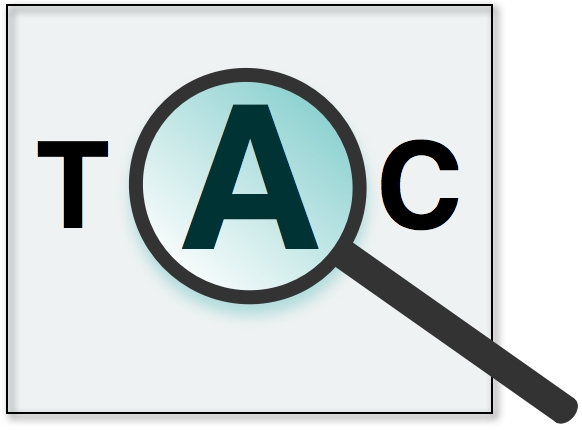
TAC 2020 Tracks
EPIC-QA
RUFES
SM-KBP
Call for Participation
Track Registration
Reporting Guidelines
TAC 2020 Workshop

Call for Participation
Text Analysis Conference (TAC 2020)
https://tac.nist.gov/2020/
Track Evaluations: August 2020 - January 2021
Workshop: February 22-23, 2021
U.S. National Institute of Standards and Technology (NIST)
With support from:
U.S. Department of Defense (DOD)
INTRODUCTION
The Text Analysis Conference (TAC) is a series of shared tasks, evaluations and workshops organized to promote research in Natural Language Processing and related applications, by providing a large test collection, common evaluation procedures, and a forum for organizations to share their results. TAC comprises multiple tracks, each of which focuses on a particular subproblem of NLP. TAC tracks aim to improve end-user tasks, but also include diagnostic and component evaluations situated within the context of end-user tasks.
You are invited to participate in TAC 2020. Organizations may choose to participate in any or all of the TAC tracks. NIST will provide test data for each track, and track participants will run their NLP systems on the data and return their results to NIST for evaluation. The annual conference culminates in a workshop to report on evaluation results.
All results submitted to NIST are archived on the TAC web site, and all evaluations of submitted results are included in the conference proceedings. Dissemination of TAC work and results other than in the conference proceedings is welcomed, but the conditions of participation specifically preclude any advertising claims based on TAC results.
TRACKS
TAC 2020 has three tracks:
-
Epidemic Question Answering (EPIC-QA)
The goal of the EPIC-QA track is to evaluate systems on their ability to provide timely and well-supported answers to questions about the disease COVID-19, its causal virus SARS-CoV-2, related coronaviruses, and the recommended response to the pandemic. Because questions arise from both experts and non-experts in the field, EPIC-QA systems are challenged to return expert-level answers as expected by the scientific and medical communities as well as answers in consumer-friendly language for the general public.
Track coordinators: Dina Demner-Fushman ([email protected]) and Travis Goodwin ([email protected])
Home page: https://bionlp.nlm.nih.gov/epic_qa/
Group / mailing list: [email protected]
- Recognizing Ultra Fine-grained EntitieS (RUFES)
The goal of the KBP RUFES track is to extract and corefer mentions of fine-grained entity types in text.
Track coordinator: Heng Ji ([email protected]) and Avirup Sil ([email protected])
Home page: http://tac.nist.gov/2020/KBP/RUFES/
Group / mailing list: [email protected]
- Streaming Multimedia Knowledge Base Population (SM-KBP)
The goal of the SM-KBP track is to develop and evaluate technologies that extract structured Knowledge Elements (KEs) from a variety of unstructured sources in order to generate explicit alternative interpretations of events, situations, and trends in noisy, conflicting, and potentially deceptive information environments.
Track coordinator Hoa Dang ([email protected])
Home page: https://tac.nist.gov/2020/KBP/SM-KBP/
Group/ mailing list: [email protected]
TRACK REGISTRATION
Organizations wishing to participate in any of the TAC 2020 tracks are invited to register online by January 15, 2021 at:
Participants are advised to register and submit all required agreement forms as soon as possible in order to receive timely access to track resources, including any sample and training data. Participants should also make sure they are subscribed to the mailing lists for the tracks for which they are registered. Registration for a track does not commit you to participating in the track, but is helpful to know for planning. Late registration will be permitted only if resources allow.
Any questions about conference participation may be sent to the TAC project manager: [email protected].
WORKSHOP
The TAC 2020 workshop will be held online on February 22-23, 2021. The TAC workshop is a forum both for presentation of results (including failure analyses and system comparisons), and for more lengthy system presentations describing techniques used, experiments run on the data, and other issues of interest to researchers in NLP.
SCHEDULE
| TAC 2020 Schedule | |
|---|---|
| August 2020 - January 2021 | Track evaluation windows (varies by track) |
| January 15, 2021 | Deadline for registration for track participation |
| By January 31, 2021 | Release of individual evaluated results to participants (most tracks) |
| February 14, 2021 | Deadline for system reports (workshop notebook version) |
| February 22-23, 2021 | TAC 2020 workshop (online) |
| April 1, 2021 | Deadline for system reports (final proceedings version) |
